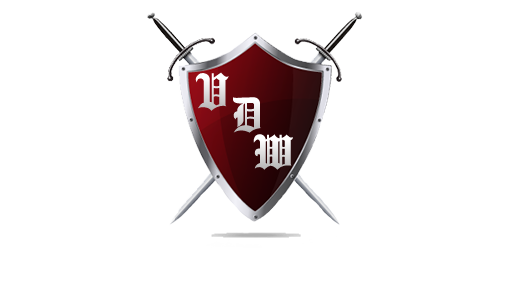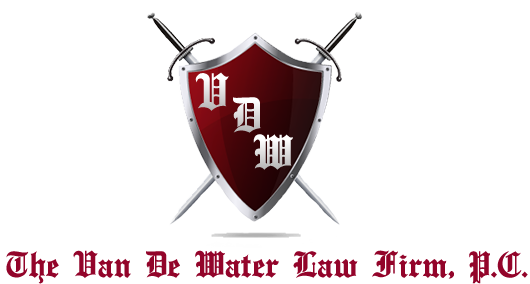PUMPING BREAST MILK IN THE WORKPLACE. YOU’RE PROTECTED UNDER FEDERAL LAW!
As a breastfeeding mother, the last thing on your mind during this joyous time should be how and when you are permitted to pump breast milk at work. However, the cold reality is that many employers don’t have a policy in place to permit pumping, and even worse, some employers discourage new mothers from pumping activities during working hours. This is illegal and has no place in today’s evolving society norms. As an employer, you have an obligation to create a breastfeeding policy and accommodate your employees.
As of 2010, Section 7 of the Fair Labor Standards Act (FLSA), a Federal statute that protects employees in their workplace, was amended to require employers to provide basic accommodations, such as time, space and other accommodations, for breastfeeding mothers at work. Learn more about what employers are required to provide.
What time accommodation does an employer have to provide nursing employees?
“Reasonable break time for an employee to express breast milk for her nursing child for 1 year after the child’s birth each time such employee has need to express the milk” — U.S. Department of Labor Wage and Hour Division, Section 7(r) of the Fair Labor Standards Act — Break Time for Nursing Mothers Provision
Employers covered under FLSA must provide a reasonable break time to express milk. The law recognizes that each woman will have different needs for milk expression breaks (often called pumping breaks). Most women use their standard breaks and meal period to pump or express milk.
However, even in work environments that require a more rigid employee schedule, reasonable time can be accommodated. Women can schedule breaks ahead of time, if needed. Some companies, such as manufacturing plants and schools, often provide floaters for coverage when employees are taking breaks. Sometimes a supervisor fills in.
What space accommodations does an employer have to provide nursing employees?
“A place other than a bathroom, that is shielded from view and free from intrusion from coworkers and the public, which may be used by an employee to express breast milk” — U.S. Department of Labor Wage and Hour Division, Section 7(r) of the Fair Labor Standards Act — Break Time for Nursing Mothers Provision.
Employers covered under FLSA must provide a private space for lactation that is not a bathroom. “Private” means that other people cannot see an employee while she is pumping breastmilk. Often this means putting a lock on the door, but some companies use mobile screens or tall cubicle areas. The space does not have to be a permanent, dedicated lactation room. This section shows many solutions for providing permanent, flexible, or temporary spaces and even mobile options that can be used in virtually every type of industry. Learn more about providing appropriate locations for nursing moms to express milk.
Why do employees who are breastfeeding need time and space for lactation at work?
Health benefits. Breastfeeding is so important for the health of mothers and babies that major medical organizations, such as the American Academy of Pediatrics (AAP), recommend that babies receive nothing but breast milk during the first 6 months of life and continue receiving breast milk for at least their first year. More than 80% of new mothers now begin breastfeeding immediately after birth.1 Breastfed babies are healthier and have lower health care costs. Giving breast milk, rather than formula, helps prevent sudden infant death syndrome (SIDS), asthma, ear infections, type 2 diabetes, and many other illnesses.2 And the longer a mother feeds her child breast milk, the more health benefits there are for both mother and child.2
Biological needs. Breastfeeding is a normal biological process. Breastfeeding employees need breaks throughout the workday to pump because milk production is a constant, ongoing biological process. A breastfeeding mother needs to feed her baby or pump milk about every 3 hours. Otherwise, her body will stop making breast milk. When a nursing mother cannot pump or breastfeed, the milk builds up in her breasts, causing pain and sometimes infection. Removing milk from the breast is a biological need, similar to the need to eat or sleep.
Comfort. A lactation space is necessary because in order to begin the flow of milk, mothers must be able to sit down and be relaxed and not stressed. Mothers who are in an open or uncomfortable space may not be able to pump milk or may not be able to pump milk as quickly.
Privacy. A private space is necessary because pumping or expressing milk is a very different experience from breastfeeding a baby in person. Most moms can breastfeed a baby very discreetly, and many moms breastfeed in public with no concerns. However, pumping breast milk is different. In order to apply the pump equipment, a woman will usually need to remove part of her clothing, and many pumps make a distinctive sound during pumping that may cause embarrassment or discomfort. Pumping equipment also needs to be cleaned after use, and breast milk must be stored properly. There are more steps required in pumping breast milk compared to breastfeeding a baby in person.
Why can’t employees pump milk in the bathroom?
Bathrooms are a place to eliminate waste from the body and to wash hands afterward in order to prevent the spread of germs and disease. Breast milk is food and should be handled in the same way other food is handled. No one would be willing to prepare food in a bathroom, and that includes breast milk. Bathrooms are not a sanitary place to prepare and handle food of any kind.
In the past, mothers were forced to use bathrooms to pump because there was no other private space available when it was time for a mother to express milk. Pumping is not something that all moms can do discreetly under a cover, in the way a baby can be breastfed discreetly in public. Breastfeeding mothers need space that is not a bathroom to express milk in a clean and private environment.
Are employers required to pay employees for pumping breaks?
“An employer shall not be required to compensate an employee receiving reasonable break time to express milk for any work time spent for such purpose.” — U.S. Department of Labor Wage and Hour Division, Section 7(r) of the Fair Labor Standards Act — Break Time for Nursing Mothers Provision
Therefore, employers are not required to pay employees for milk expression breaks, although some companies choose to do so. If an employer already provides paid breaks, however, an employee who uses that break time to pump must be compensated in the same way other employees are compensated for break time. If extra time is needed because a mother is pumping or expressing milk, that extra time can be unpaid.
Other options, though not required by law, are to allow women to work a more flexible schedule and make up extra time needed by coming to work earlier, staying later, or taking a shorter meal break. Some companies do not track extra break time taken as long as an employee completes her job duties in a timely manner. Learn more about providing break time to nursing moms.
Does my employer have to create a lactation policy?
Creating a policy helps ensure that all employees have access to the same level of support, no matter what type of workplace they have. A policy helps the company be sure it is complying with federal regulations and also shows support for the health of employees and their families. A policy clearly defines the roles and responsibilities of both supervisors and employees, potentially helping them avoid embarrassment about discussing a personal topic. Having a policy in place means that managers will know exactly how to support an employee who is returning from maternity leave and wants to continue breastfeeding. And having a policy means that before maternity leave, employees will know what type of breastfeeding support they will receive at work. A lactation policy can help a mother decide whether to return to work after maternity leave.
A lactation policy or lactation support program also helps managers and supervisors communicate the importance of lactation breaks and private lactation space to all staff, not just the nursing mother. Employers can use a formal policy to educate all staff about the importance of respecting a coworker’s privacy while pumping and about providing coverage during lactation breaks. A clearly communicated policy can help prevent harassment and other negative workplace behavior.
What about New York State laws that protect breastfeeding mothers?
The following summaries the protections available to breastfeeding mothers under New York State Statutes:
- N.Y. Civil Rights Law § 79-e (1994) permits a mother to breastfeed her child in any public or private location. (SB 3999)
- N.Y. Labor Law § 206-c (2007) states that employers must allow breastfeeding mothers reasonable, unpaid break times to express milk and make a reasonable attempt to provide a private location for her to do so. Prohibits discrimination against breastfeeding mothers.
- N.Y. Public Health Law § 2505 provides that the Maternal and Child Health commissioner has the power to adopt regulations and guidelines including, but not limited to donor standards, methods of collection, and standards for storage and distribution of human breast milk.
- N.Y. Public Health Law § 2505-a creates the Breastfeeding Mothers Bill of Rights and requires it to be posted in a public place in each maternal health care facility. The commissioner must also make the Breastfeeding Mothers Bill of Rights available on the health department’s website so that health care facilities and providers may include such rights in a maternity information leaflet. (2009 N.Y. Laws, Chap. 292; AB 789)
We at the Van De Water Law Firm, P.C. specialize in wage and hour and overtime cases. If you believe you are the victim of overtime violations, we are always available for a free consultation and can be reached via email: [email protected], cell phone: (516) 384-6223, office (631) 923-1314. More information can be found at the website.
“I am your legal protector”



Recent Comments